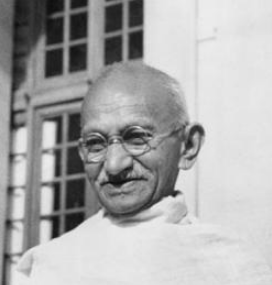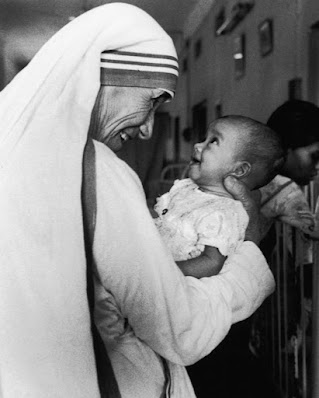Agnes, let’s go for a swing. Looking like the girl next door. But her father died when she was age 8. As a school girl, no one, not her teachers, not her classmates knew her destiny.
Jane spent her childhood reading in the house and playing outdoors, but her spine curvature and limp made it complicated for her to run and play with other children. She saw herself as so ugly she avoided “embarrassing” her father by not walking down the street with him. Reading Dickens, she became inspired to become a doctor so she could live and work among the poor.
(Jane Addams)
 Mo, said his sister Raliat describing her brother is as “restless as mercury, either playing or roaming about. One of his favourite pastimes was twisting dogs’ ears.” At age 9 he entered the local elementary school where is studied arithmetic, history... geography. At 11 he joined Alfred High School, was an average but tongue tied student without companions except his books and lessons.
Mo, said his sister Raliat describing her brother is as “restless as mercury, either playing or roaming about. One of his favourite pastimes was twisting dogs’ ears.” At age 9 he entered the local elementary school where is studied arithmetic, history... geography. At 11 he joined Alfred High School, was an average but tongue tied student without companions except his books and lessons.
Juan once wrote: “It is far more difficult to make peace that it is to wage war, I know because I have done both.” --Juan Manuel Santos, Nobel Peace Prize
What these four have in common? In elementary school they were ordinary children. Every teacher today has classes filled with them: “ordinary kids”. Some are photogenic, some not, some happy, some not, some average, some not. But of none, do we know their destinies.
Agnes became a teacher and was later known as Mother Teresa. During the 1982 Siege of Beirut she brokered a temporary cease-fire between the Israeli army and Palestinian guerrillas and moved through the war zone to rescue 37 children trapped in a front-line hospital. None of her schoolmates imagined her rescuing kids from a war zone.
Jane Addams, first woman awarded the Nobel Peace Prize, was the co-founder of the American Civil Liberties Union, the first woman to receive an honorary degree from Yale. In 1935 she was the best-known woman in the United States.
Juan Manual Santos was awarded the Nobel Peace Prize “for his resolute efforts to bring the country’s 50-year-long civil war to an end.” In comparison, the American Civil War lasted 4 years. He delivered his Nobel Lecture December 10, 2016 titled: “Peace in Columbia: From the Impossible to the Possible.
“Sueños impossibles.”
As children, they appeared as four ordinary children with unimaginable destinies, some to become teachers, others...
Today there are tens of thousands of teachers like Agnes. So during your faculty meetings, look around at your colleagues and try to find the ones destined for the Nobel Peace Prize.
If I were to go back as a first year teacher, I would look carefully into the eyes of all my students and wonder... what is your destiny? There be laureates and saints among us. It is true that I once delivered an extemporaneous lesson when two of my students animatedly entered the room in a charged discussion, maledictions deleted. I stopped the exchange abruptly: “Language! Teacher in the house. Sensitive ears! Everyone smiled. But I began class with this question:
What if you knew that Mother Teresa was in the room when you entered? Would your conduct be any different? Most of the class nodded understanding. “We’d be more respectful if she was in the room.” Exactly, let’s conduct this class it that manner ... who know’s there may be a future saint in the room.
 Mo, said his sister Raliat describing her brother is as “restless as mercury, either playing or roaming about. One of his favourite pastimes was twisting dogs’ ears.” At age 9 he entered the local elementary school where is studied arithmetic, history... geography. At 11 he joined Alfred High School, was an average but tongue tied student without companions except his books and lessons.
Mo, said his sister Raliat describing her brother is as “restless as mercury, either playing or roaming about. One of his favourite pastimes was twisting dogs’ ears.” At age 9 he entered the local elementary school where is studied arithmetic, history... geography. At 11 he joined Alfred High School, was an average but tongue tied student without companions except his books and lessons.








No comments:
Post a Comment